
Chronic obstructive pulmonary disease (COPD) is an umbrella term used to describe one of two different respiratory ailments: chronic bronchitis and emphysema. The former is characterized by swelling and inflammation of the bronchial tubes and the latter is characterized by damaged alveoli, the small air sacs in the lungs that are responsible for the transmission of oxygen and carbon dioxide to and from the blood.
When COPD is diagnosed, patients aren’t simply given a “one-size-fits-all” treatment plan. Instead, doctors will look at several different variables such as how developed the COPD is, where it’s located, and what caused it. By doing so, he/she will be able to create a treatment plan that is customized to your specific condition.
In this post, we’re going to be looking at the early stages of COPD. This is commonly referred to by medical professionals as “stage 1 COPD” because it’s when the signs of COPD first start to emerge. If you’re diagnosed during this stage, there are several things you should know, so stay tuned to find out, and be sure to get in touch with us if you have any questions.
{{cta('fa8abc2a-1e88-4fa3-82fd-1cb5b9ed43b2','justifycenter')}}
Symptoms of Early-Stage COPD
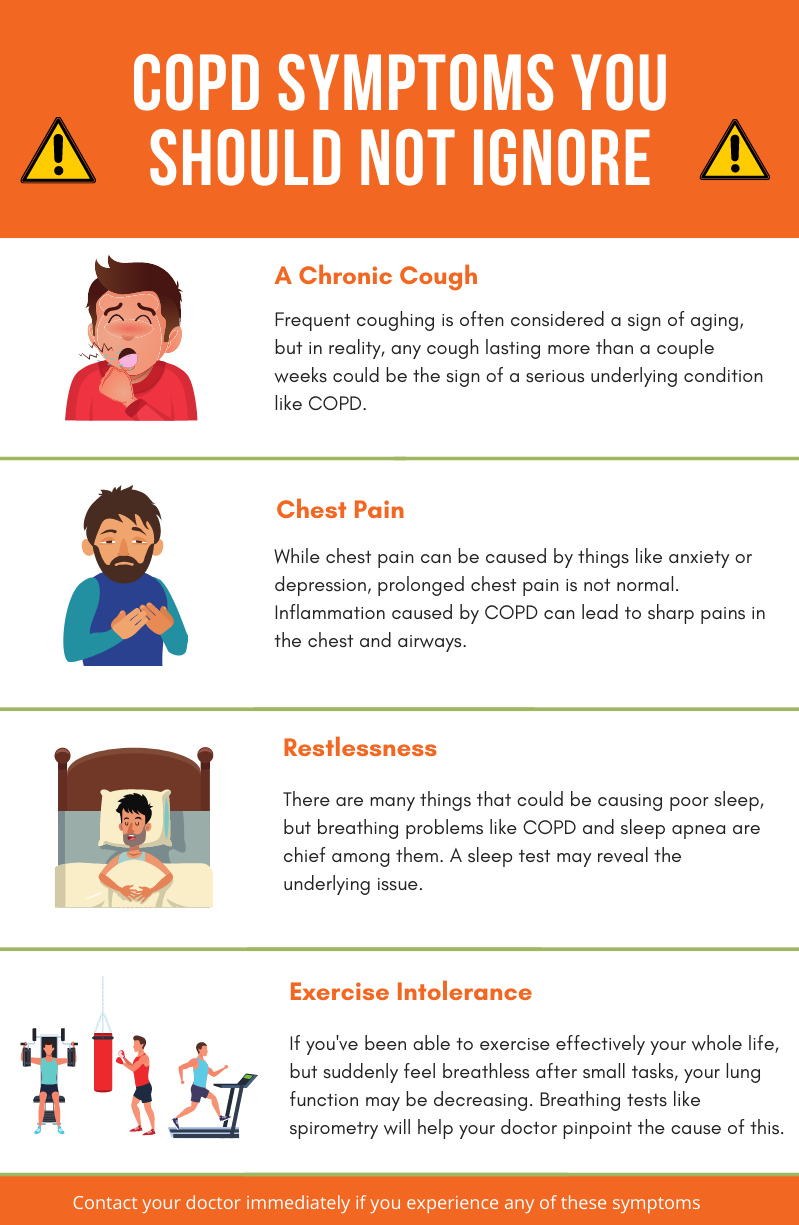
1.) You’re Not Alone
Did you know that about 16.4 million people in the United States have COPD and an estimated 328 million people have COPD worldwide? While it’s easy to feel alone when you’re diagnosed, in reality, it’s one of the most prevalent health conditions in the world ahead of lung cancer, diabetes mellitus, and even Alzheimer’s disease.

Unfortunately, most COPD patients don’t get this impression from watching the news, reading the paper, or simply going about their daily lives. Despite how common COPD is, it sorely under-discussed and underfunded. What’s more, there seems to be a general lack of understanding of what COPD even is.
According to the National Chronic Obstructive Pulmonary Experience (COPDE) Survey, 60 percent of respondents reported not having an action plan for dealing with exacerbations and 16 percent reported not even knowing what a COPD exacerbation was. Another study published in the European Respiratory Journal found that only about 50 percent of current or previous smokers surveyed knew what COPD was.
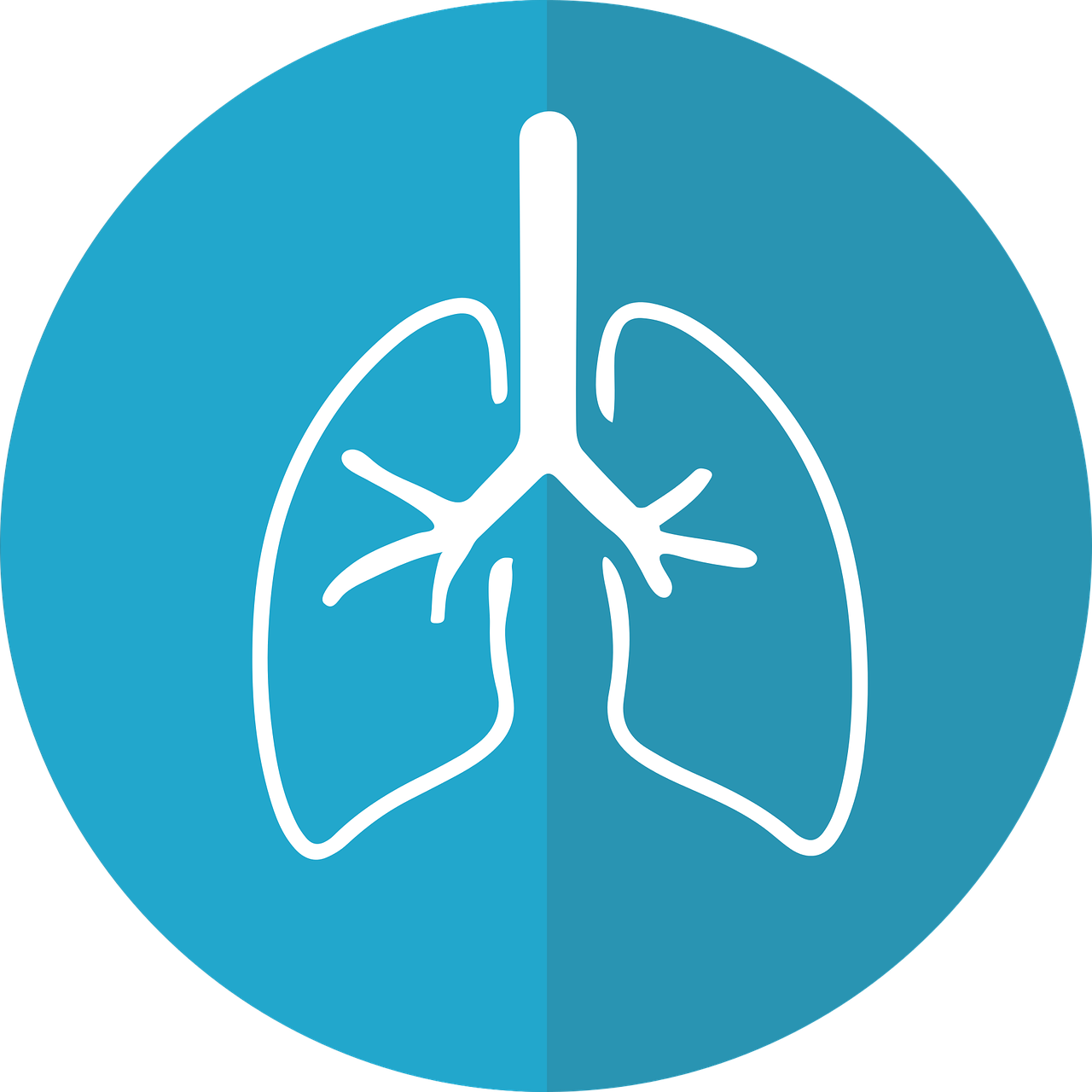
It’s difficult to say why COPD has less awareness in the general population and among smokers than other lung diseases, but there are definitely some likely causes. For starters, cancer often takes the spotlight these days. Cancer is one of the most talked-about chronic illnesses in this day and age. It’s the second-leading cause of death in the country, but only about one-fourth of the total cancer deaths are caused by lung cancer. This could lead to people unknowingly inflating the prevalence of lung cancer.
{{cta('b59df0c1-c4de-47a8-8e1c-0d33d4b414aa','justifycenter')}}
Another potential cause of the lack of awareness for COPD is the way it develops. While COPD tends to develop very slowly over the course of many years, lung cancer is often the opposite. Lung cancer is often considered to be one of the fastest-growing cancers and small cell lung cancer (SCLC) patients, in particular, often die after just 5 years. Another problem with lung cancer is its tendency to spread to other parts of the body.
Finally, you need to consider the fact that COPD is often affected by diagnostic error. In other words, someone may have COPD and not know it, or they might visit a doctor for their symptoms and get diagnosed with a condition other than COPD such as asthma or pulmonary fibrosis. Studies suggest that about one-fifth of smokers over the age of 40 show signs of COPD, but millions of them do not receive a diagnosis.

When you take all of these factors into consideration, along with the fact that lung cancer and COPD share the same awareness month (November), it’s not hard to see how COPD can often be overshadowed. It’s important to not diminish the awareness surrounding lung cancer because it is a very serious disease, however, it’s also important for COPD patients to know how common their illness is. What’s more, errors in spirometry testing can also lead to misdiagnosis of COPD.
2.) There is an Active COPD Support Community
Now that you’re aware of how common COPD is, you’re likely wondering what options you’ll have to get involved in the community. Luckily, there are a whole host of COPD communities out there composed of COPD patients, caretakers, researchers, medical specialists, medical device manufacturers, and more. And with how connected modern technology is, you’ll be surprised to find just how easy it is to get started.
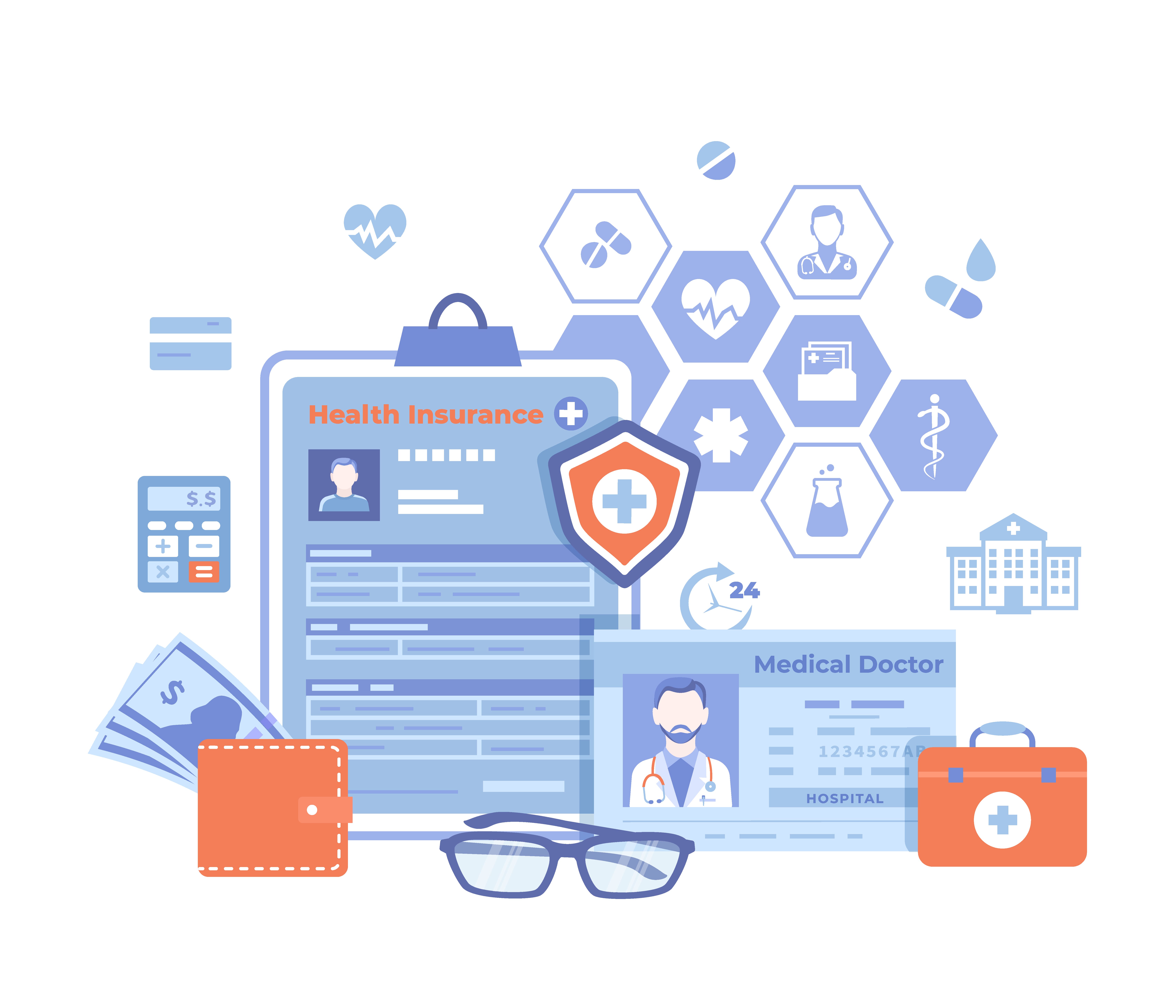
We made a blog post in the past that covers this topic in detail, however, we’ll summarize its points here for your convenience. In simple terms, a COPD community is a place for people with COPD to come together to support each other and raise awareness for the problems they face. COPD communities can either be organized by an individual like a patient or a caretaker, or they can be created by an organization.
For example, the COPD Foundation created an online COPD forum called COPD360 Social. This forum is designed to connect and foster communication between COPD patients, healthcare professionals, caretakers, academic institutions, and researchers in order to aid in COPD prevention and management. Like other forums on the internet, COPD360 Social has a badge system that allows you to upvote a user’s responses. This way, the community decides which users are the most helpful and trusted. In order to make this platform accessible to people all across the world, it’s 100% free to use.
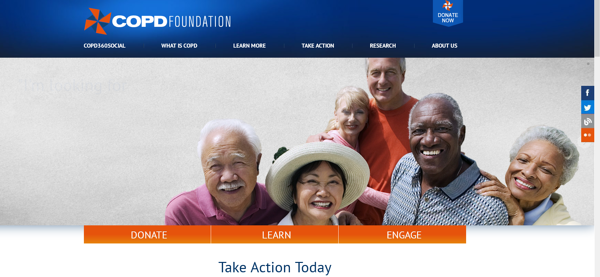
Another COPD organization that offers an online community is the American Lung Association. While the ALA puts a lot of their focus on lung cancer and creating cleaner air for future generations, they also host an online forum similar to the one offered by the COPD Foundation. The forum is accessed through Inspire.com. One of it’s best features is that it has a mobile application meaning you can access it via your phone or tablet from anywhere in the world.
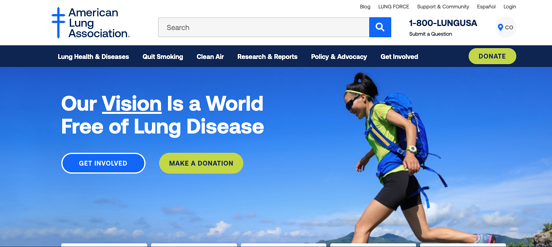
One final COPD organization you should be aware of if you’ve just been diagnosed with early-stage COPD is COPD.net. This forum is hosted by Health Union, a social media platform designed to leverage technology to create more productive, impactful, and meaningful conversations between people with chronic illnesses. When you subscribe to COPD.net’s Help Center, you’ll receive weekly surveys and research opportunities, an e-newsletter, and you’ll be given access to the Q&A tool online.
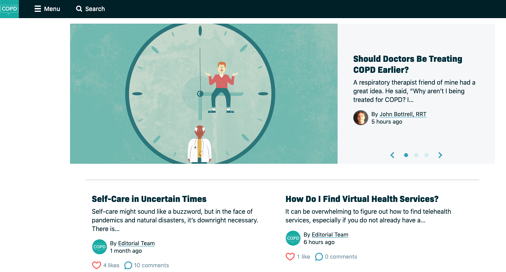
Another great way to get involved is through social media sites. Facebook, for example, has a feature called “groups” that can be created or joined by any user. These groups are designed to bring people together to discuss specific topics and there are hundreds of them that discuss respiratory illness, smoking cessation, and other topics relevant to COPD patients. Getting started is easy. Simply go up to the search bar and type in the topic that interests you. Then click on “groups” and it will display a list of results. You can then join any group you want and begin conversing with other likeminded people.
Becoming involved in the community is extremely important for COPD patients, no matter what stage of their lives they’re in. A study published in PubMed, a public access journal, found that — regardless of the severity of COPD — most patients feel a strong desire to feel involved in social gatherings like holidays, one-on-one communication, or social media interactions. In other words, being engaged rather than simply participating gave them more of a sense of purpose in their daily lives.
3.) COPD Can’t Be Reversed, But it Can be Treated
One thing many people do when they’re first diagnosed with COPD is they immediately start searching for a cure. Unfortunately, COPD is not like an infection that can be cured with antibiotics and it’s not like a headache that will go away with time. COPD is permanent and it’s progressive meaning it can only get worse.

While this may seem like a pretty grim reality, it’s actually not! If you’re careful to implement effective lifestyle changes you’ll be able to drastically slow the progression of your disease, reduce respiratory symptoms, and experience peace of mind. But in order to make these changes, you need to know a little about COPD and what causes it.
COPD is the result of chronic inflammation in the lungs and airways. 85 to 90 percent of COPD cases are the result of cigarette smoking, but there is also a condition called Alpha-1 deficiency that leads to the onset of COPD in non-smokers. Alpha-1 is a protein that regulates immune reactions in the lungs, and when it’s not produced in high enough quantities, it can make your lungs vulnerable to permanent damage.
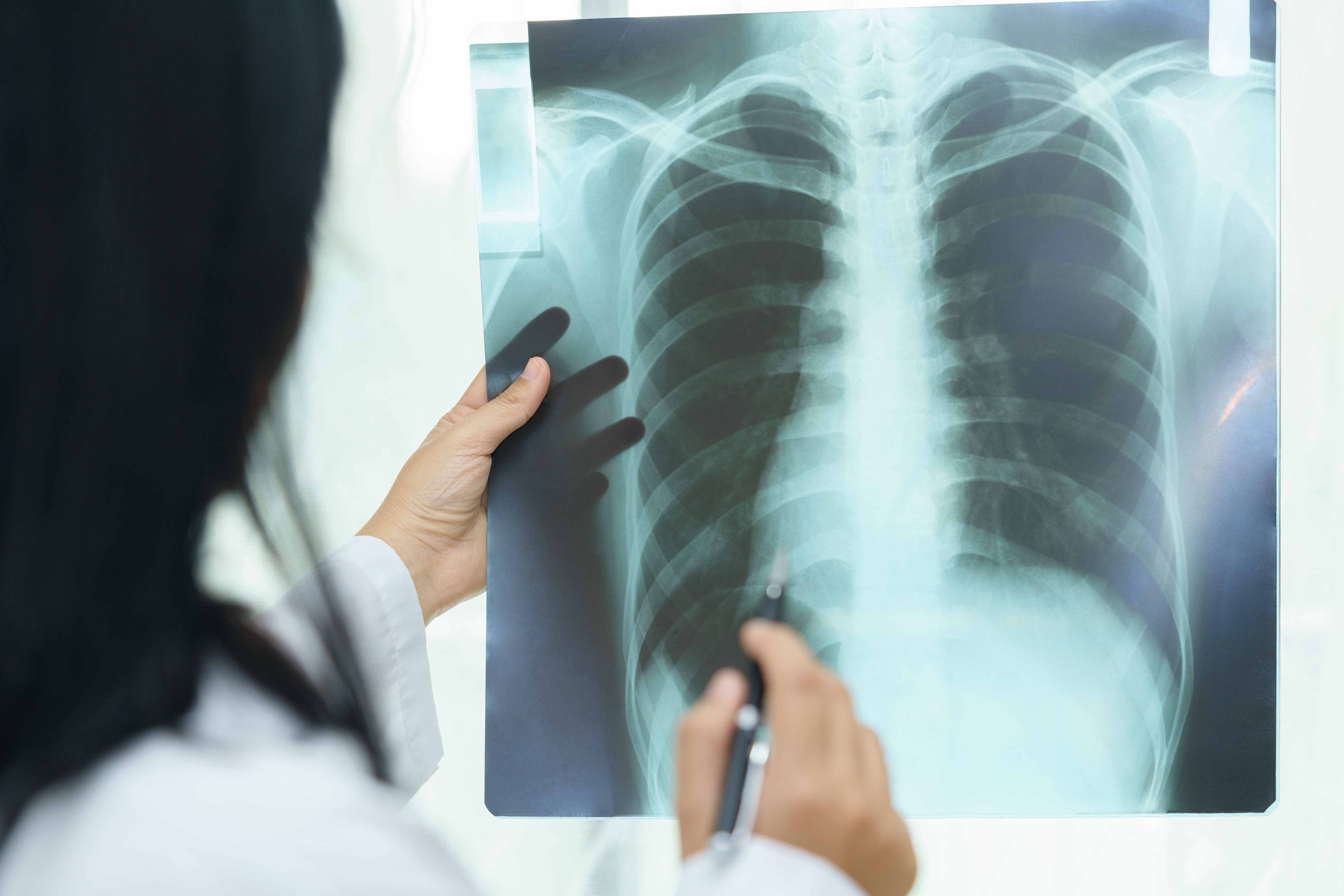
Over time, this inflammation becomes worse and further impairs your breathing so it’s imperative that you avoid anything that could irritate it such as cigarette smoke, car exhaust, or any other type of air pollution. It’s also important to avoid infection because this is the leading cause of COPD exacerbations (when symptoms rapidly get worse).
Supplemental oxygen therapy is one of the best ways to stabilize your condition, reduce respiratory symptoms, and improve your life expectancy. In the past, COPD patients would need to carry around bulky oxygen tanks, but portable oxygen concentrators have since replaced them as a lightweight and more convenient alternative.
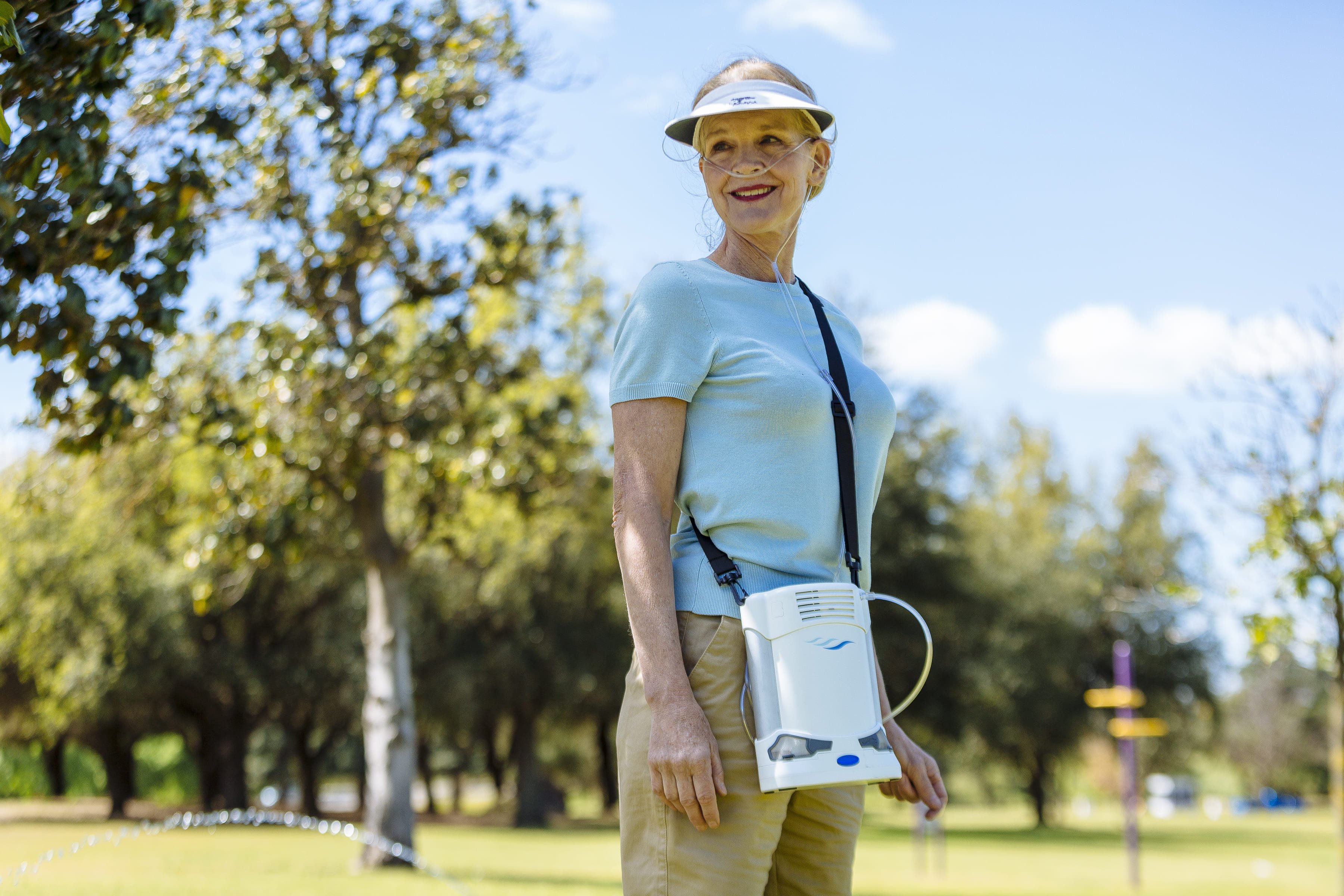
Another key component of a COPD treatment plan is pulmonary rehabilitation. This is similar to how you would go through a physical therapy course if you sustained an injury to your legs or back but it focuses on the lungs. Not only will pulmonary rehab show you how to exercise effectively with COPD, but you will learn important lessons about how your lungs function and how to keep them healthy.
Last but certainly not least is the dietary component of your treatment plan. While it may not seem like your diet would have an immense impact on COPD progression, it actually does. Evidence suggests that antioxidants found in fruits and vegetables have anti-inflammatory properties that have positive effects on people with COPD and asthma. Similar studies also found that soluble fiber intake has the potential to protect against airways inflammation.

Conversely, foods that lead to weight gain, obesity, and fatigue can all add to your COPD symptoms. Studies have found that obesity can lead to alterations in immune function, insulin resistance, and dyslipidemia (an abnormal amount of lipids in the blood). However, being underweight with COPD has its problems as well, so a healthy weight should be your goal.
Supplemental oxygen, pulmonary rehab, and diet are a few, but not the only methods of treating COPD. Above all, you should be open and honest with your doctor about your symptoms so that he/she can create a treatment plan that’s based on your needs.
{{cta('43b79c5e-6bd6-4f02-ac27-2d038d20c146','justifycenter')}}
4.) It’s the Best Time to Quit Smoking
If you haven’t done so already, now is the perfect time to quit smoking. As aforementioned, 85 to 90 percent of COPD cases are caused by smoking but it’s also important to remember that the majority of people who smoke are never diagnosed with COPD. Rather, they develop other chronic diseases such as lung cancer, diabetes, and heart disease. According to the Cleveland Clinic, smokers have a 70 percent higher risk of dying from coronary artery disease than nonsmokers.
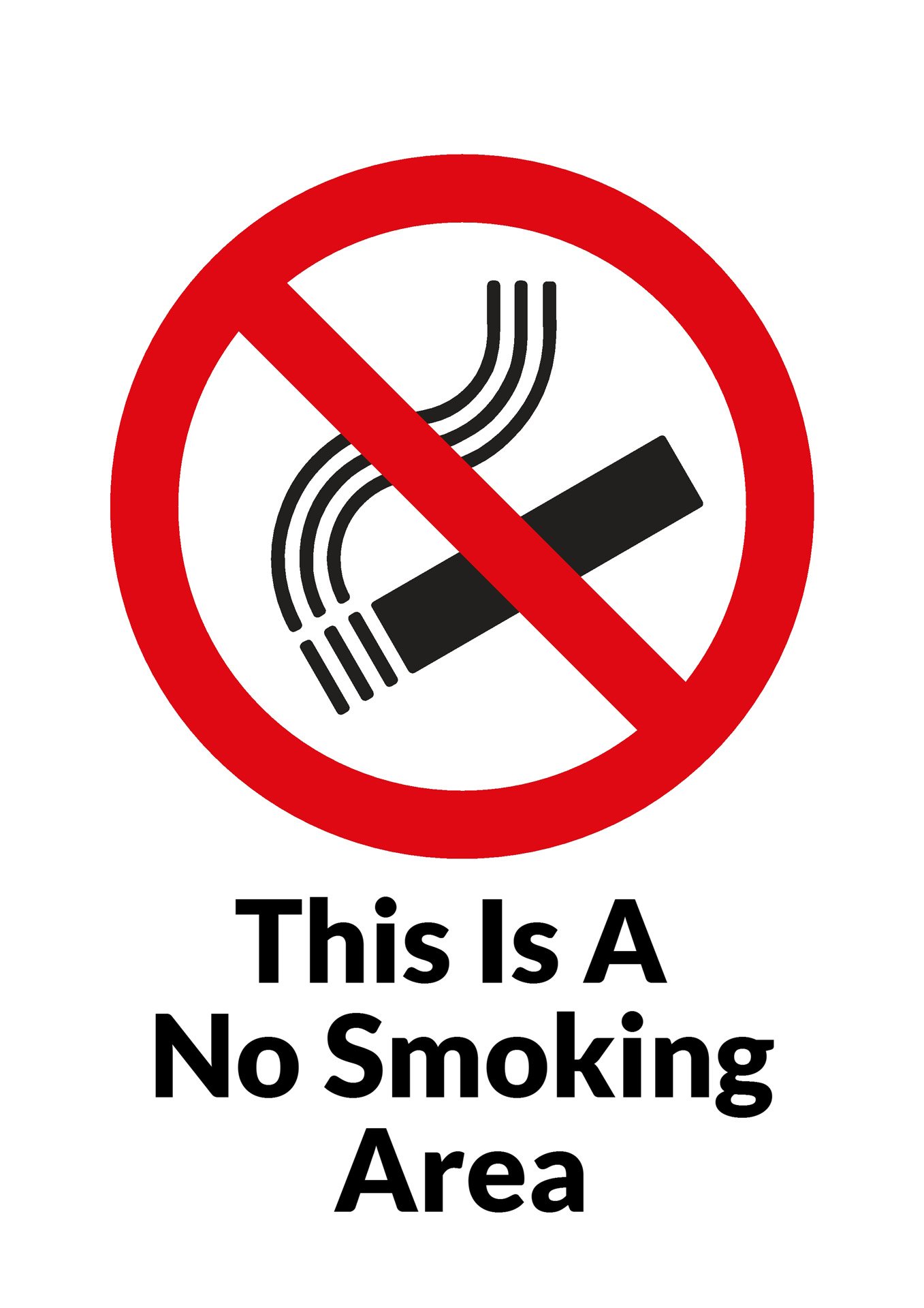
Since smoking causes COPD, it can also make COPD symptoms worse by increasing the rate of inflammation in the lungs and airways. Smoking is known as an immunosuppressant drug meaning it reduces your body’s ability to prevent infection temporarily. Since infection is the leading cause of COPD exacerbation and we’re in the middle of a pandemic, smoking is the last thing you want to do!
5.) It’s the Best Time To Implement Long-Term Goals
Many people go their whole lives without implementing long-term goals. This can be very detrimental if you want to achieve your full potential, especially when it comes to your health. Whether you’ve been a long-term planner before or you’ve always stuck to short-term goals, there’s never been a better time to start.

As we’ve already established, smoking cessation should be your first goal, but ideally, this should be a short-term goal because immediate cessation is will help you better achieve your long-term goals. But aside from this, your first goal should be to create a COPD action plan and implement it successfully.
A COPD action plan is a personalized plan for managing your symptoms and exacerbations. For example, it could remind you how much you need to exercise each day or what foods you need to avoid in order to prevent respiratory flare-ups. We made a whole blog post about this subject so don’t hesitate to check it out.
6.) It’s Not the End
The last, but probably most important thing you should know about early-stage COPD is that it does not signify “the end” of your life. Not only that, but it is not even the beginning of the end. While being diagnosed with COPD is certainly not a positive experience, it is possible to achieve a positive outlook by changing your mindset and practicing healthy habits.

One positive thing to focus on is that COPD patients enjoy a far greater life expectancy than people with other chronic diseases. On average, a current smoker with stage 1 COPD has a life expectancy of 14 years. Compare this to the 50 percent of heart disease patients who live past 5 years or the 16 to 24-month median survival rate for small-cell lung cancer patients.
But it’s not just about survival rate, it’s also about quality of life. COPD patients who implement effective and proven treatment strategies like supplemental oxygen therapy, pulmonary rehabilitation, and an improved diet see improved quality of life.
{{cta('fa8abc2a-1e88-4fa3-82fd-1cb5b9ed43b2','justifycenter')}}
Final Thoughts
COPD is a serious debilitating disease, but it is by no means the final straw. Even if you have been diagnosed with early-stage COPD, you have a lot of life to live and it can be enhanced by closely adhering to your doctor’s instructions.
In the meantime, getting involved in the COPD community, taking care of your mental health, and quitting smoking are all important steps to take after you receive a diagnosis. Doing so will ensure that you live a long, happy, and fulfilling life.

